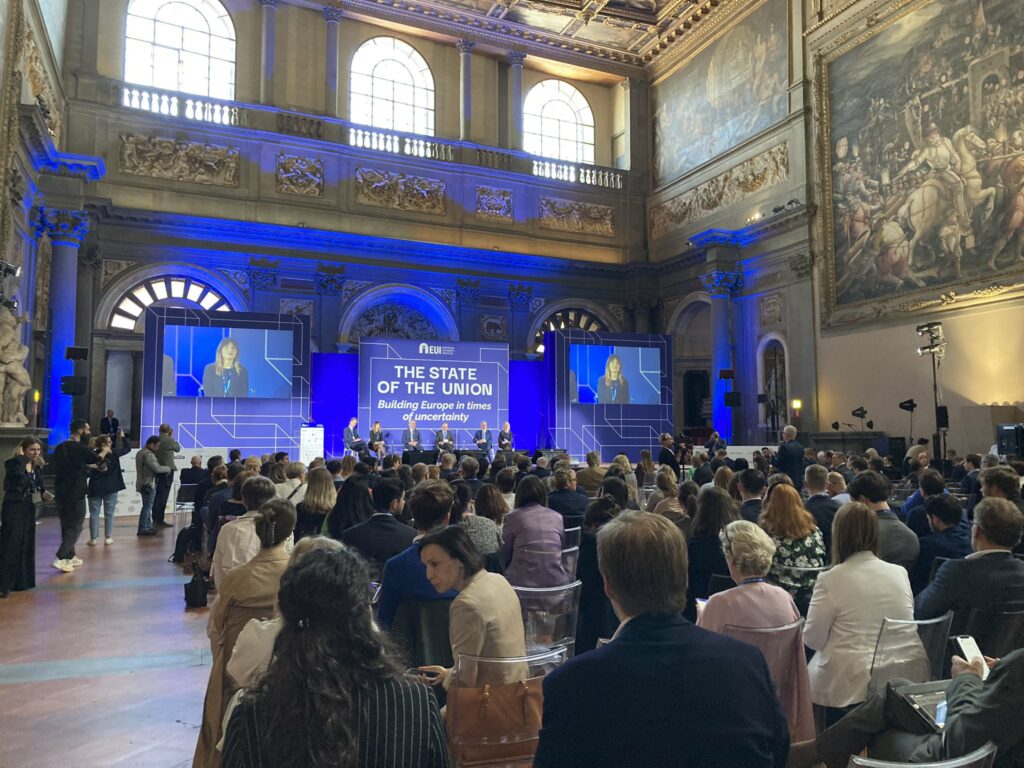Counteracting the energy crisis: new emergency measures adopted by the EU
This is the second instalment of the Topic of the Month: Building Energy Security in Times of Uncertainty
The second installment of the Topic of the Month on Energy Security analyses the three emergency measures that the EU put forward to outweigh the energy crisis, with a focus on natural gas.
The energy crisis of 2022-2023 has created significant challenges for governments, businesses, and consumers across the globe, and it has highlighted the EU’s and Member States’ vulnerability to energy security risks. With natural gas being a primary energy source for many countries, its shortage has triggered the need for new emergency measures (IEA, 2023).
In response, the European Union (EU) has introduced a series of new regulations to ensure the security of the gas supply, aiming to enhance the resilience of the natural gas market and ensure that the region has access to adequate energy supplies despite the challenges posed by the crisis.
This blog will provide an overview of these measures, focusing on some provisions of the new emergency toolboxes for the natural gas found, particularly in Regulation EU 2022/2578, Regulation EU 2022/1032, and Regulation EU 2022/1369. It will also highlight the benefits and potential drawbacks of these novel energy emergency measures and provide some conclusions on the effectiveness of these measures.
Overall, these regulations provide a framework for ensuring energy security and reducing the EU’s reliance on external energy sources in line with the REPowerEU plan adopted in May 2022 to phase out the dependence of the EU on Russian gas. By increasing the EU’s bargaining power with suppliers, the regulations aim to reduce the impact of price volatility on consumers. The minimum storage requirements for gas also help to ensure that the EU has enough gas supplies to meet demand during the winter months. Finally, the energy efficiency regulation is expected to reduce energy consumption in buildings, leading to cost savings for consumers and reducing the EU’s carbon footprint (Florence School of Regulation, 2023).
Looking at the three regulations put forward, if Regulation EU 2022/2578 focuses on the gas market and commodity prices, instead Regulation EU 2022/1032 and Regulation EU 2022/1369 deal with volume availability and demand, respectively. What the first and the last measures have in common is that they are only temporary in nature, but they can be extended if needed.
Market correction mechanisms – Regulation EU 2022/2578
Regulation 2022/2578, enacted in December 2022, introduces a market correction mechanism and price cap. The mechanism is designed to prevent excessive pricing in the gas market by allowing the European Commission to intervene in cases of market distortion. If the Commission identifies a market distortion, it can impose a price cap on natural gas, preventing prices from rising too high.
The regulation also introduces a market correction mechanism that allows for the suspension of trading in cases of severe market volatility. This mechanism ensures that prices remain stable during periods of market stress, preventing panic buying and hoarding (Council of the European Union, 2022b).
The mechanism is only in effect for a year, starting on February 15, 2023.
Storage filling and burden sharing – Regulation EU 2022/1032
Regulation EU 2022/1032, enacted in June 2022, introduces storage filling targets and burden sharing. The regulation requires natural gas underground storages to be filled to at least 80% of capacity before the winter of 2022/2023 and to 90% before the following winter periods. This helps to ensure that enough gas is available to meet demand during periods of high consumption.
The regulation also states that Member States lacking storage facilities on their territory must store 15% of their annual domestic gas consumption in Member States with storage facilities to share the financial burden involved in filling EU storage capabilities. This helps to spread the volumes and the cost of maintaining storage facilities more evenly across the industry (European Parliament & Council of the European Union, 2022).
Demand response measures – Regulation EU 2022/1369
Finally, Regulation EU 2022/1369, enacted in August 2022, introduces demand response measures. These measures allow energy consumers to adjust their energy consumption in response to changes in energy prices. The regulation encourages energy consumers to voluntarily reduce their consumption by 15% during periods of high demand, helping to reduce the strain on the energy system. This can help to prevent blackouts and ensure that energy supplies remain stable (Council of the European Union, 2022a).
Its extension for an additional year is currently under review.
The long-run influence of these measures on the gas market design
Energy security is the ability of a country or region to ensure the availability of affordable and reliable energy supplies. The need for energy security measures arises from the fact that energy is a critical input to economic activity, and energy supply disruptions can significantly negatively impact economic growth and development. Energy security is essential for countries heavily reliant on energy imports, as disruptions to energy supplies can lead to a range of economic and political challenges, including inflation, recession, and geopolitical tensions.
The EU has been taking steps to improve its energy security for several years, including investing in renewable energy sources, increasing energy efficiency, and improving energy infrastructure. However, the current energy crisis has highlighted the need for additional measures to ensure that the EU has sufficient energy supplies to meet its needs, particularly during periods of high demand. The measures adopted since March 2022, including demand aggregation, an extension of solidarity agreements, gas storage minimums, and energy efficiency regulations, are aimed at addressing these challenges and improving the EU’s energy security.
Different concerns have arisen since their introduction. Some criticisms relate to the regulations possibly leading to a situation where storage operators are forced to purchase gas at high prices to meet the minimum storage requirements, which could, in turn, lead to higher costs for consumers. While others relate to the regulations needing to consider the diversity of the gas storage market across different EU Member States. Finally, there are concerns that the regulations may need to be more effective in reducing energy prices for consumers or effective at all (Barnes, 2022).
Yet, most of the novel emergency measures implemented are only temporary. Thus, it is still being determined if they will have a long-term influence on the framework for European gas market design, and the next series installment will provide additional thoughts on this.
References
Barnes, A. (2022). EU Commission proposal for joint gas purchasing, price caps and collective allocation of gas: an assessment.
Council of the European Union. (2022a). COUNCIL REGULATION (EU) 2022/1369 of 5 August 2022 on coordinated demand-reduction measures for gas.
Council of the European Union. (2022b). COUNCIL REGULATION (EU) 2022/2578 of 22 December 2022 establishing a market correction mechanism to protect Union citizens and the economy against excessively high prices.
European Parliament, & Council of the European Union. (2022). REGULATION (EU) 2022/1032 OF THE EUROPEAN PARLIAMENT AND OF THE COUNCIL of 29 June 2022 amending Regulations (EU) 2017/1938 and (EC) No 715/2009 with regard to gas storage.
Florence School of Regulation. (2023, April 4). Lessons learned from the crisis: insights on three newly introduced EU emergency gas measures Highlights from the online FSR Insight: Experience with emergency gas measures – price cap, storage and saving regulations. Https://Fsr.Eui.Eu/Lessons-Learned-from-the-Crisis-Insights-on-Three-Newly-Introduced-Eu-Emergency-Gas-Measures/.
IEA. (2023). Gas Market Report Q1 2023.






